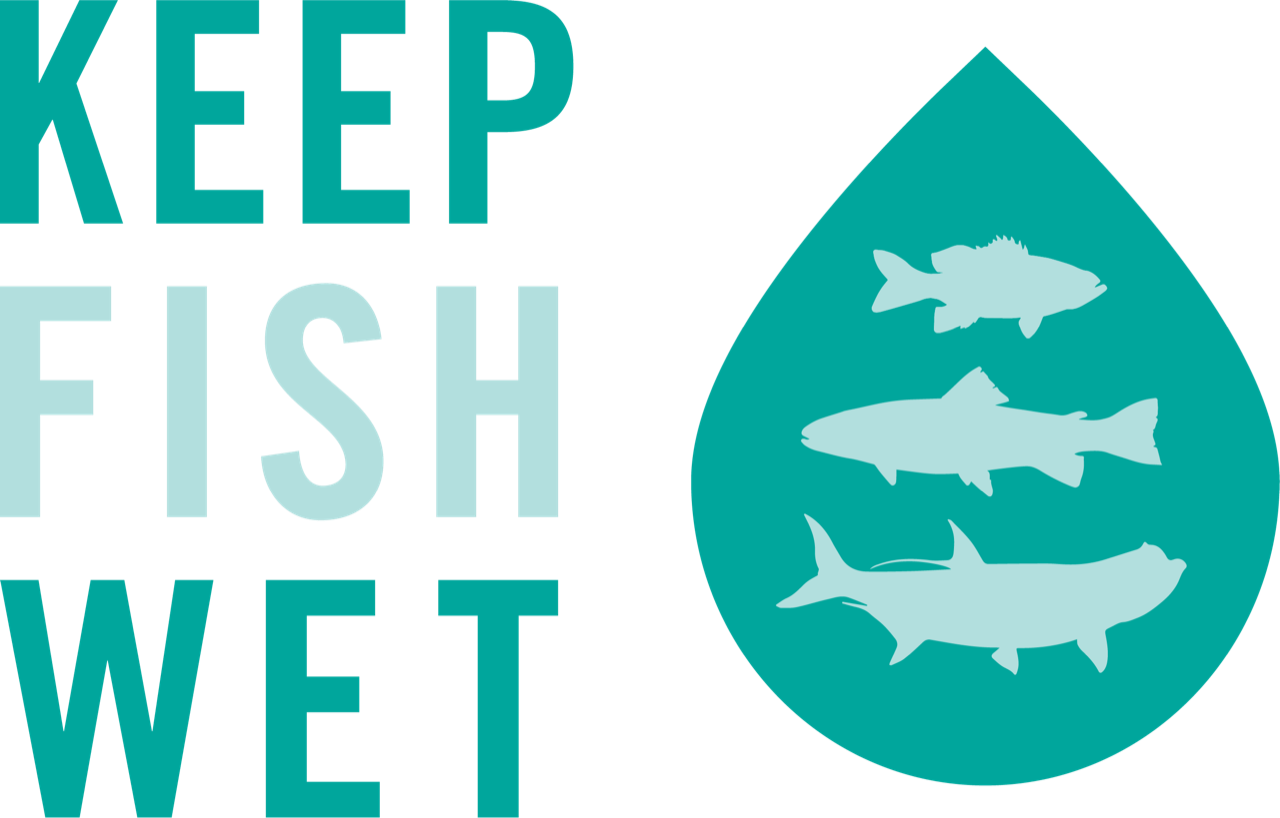Fish can get stressed too
By Sascha Clark Danylchuk
Rainbow trout darts back into it's Alaskan stream after release. Bryan Huskey photo via Bristol Bay Lodge.
Before we dive into the study (Meka & McCormick 2005), I wanted to start with a brief discussion of stress in fish. Scientists measure stress in fish to determine how our interactions with fish (e.g. angling) affects their health and welfare. Just like in humans, too much stress in fish can lead to decreased performance, poor health, and even an increase in the likelihood of death. There are a variety of indicators that can be used to quantify stress, each with advantages and disadvantages. Two of the more common indicators are cortisol and lactate.
Cortisol: a hormone found in all vertebrates and often called “the stress hormone”. You could think of cortisol as a messenger, and an increase in cortisol can trigger a response in numerous parts of the body. When scientists measure cortisol level in blood, we assume that a higher level of cortisol is indicative of a higher level of stress.
Lactate: a byproduct of extreme muscle activity. For the athletes out there, it’s related to lactic acid buildup in muscles due to anaerobic activity. In the context of angling, higher levels of blood lactate indicate that a fish has been exercising more in response to being on the fishing line, and is more stressed.
So, back to the study, this one examines the stress caused by angling for wild rainbow trout in Alaska.
What did they do?
• Used real angling techniques (spin and fly fishing)
• Compared rapid capture fish (less than 2 minutes from hooking to hook removal) to extended capture fish (over 2 minutes from hooking to hook removal)
• Took blood samples after the hook was removed to measure cortisol and lactate (and a couple of other parameters, which I’m going to ignore for now)
• No air exposure to any fish
What did they find?
• Extended capture fish had higher levels of cortisol and lactate
• Larger fish took longer to land
• All else being equal, higher water temperatures can (but don’t always) correspond with higher levels of lactate and cortisol
Fly fishing the Alaskan backcountry. Bryan Huskey photo via Bristol Bay Lodge.
Why is this study important to anglers?
• Choosing tackle that reduces the amount of time a fish is on the line and the time it takes to handle the fish and remove the hook is important to reducing stress.
• Bigger fish that fight longer are likely more stressed
See the full study: Physiological response of wild rainbow trout to angling: impact of
angling duration, fish size, body condition, and temperature
Julie M. Mekaa,∗, Stephen D. McCormickb
Happy Fishing!
Sascha Clark Danylchuk


